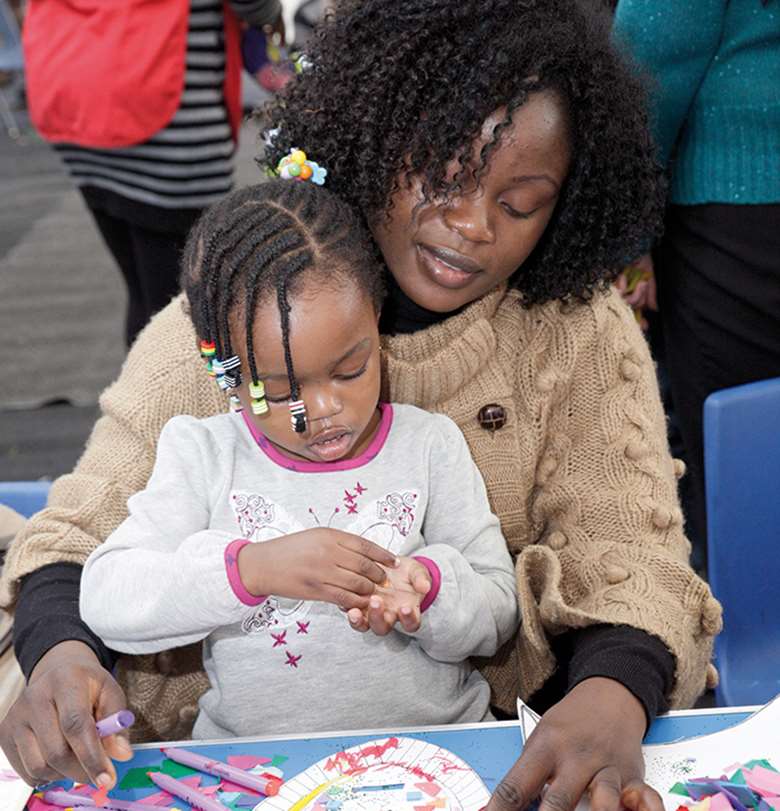Promoting social mobility early
Professor Sonia Blandford
Wednesday, July 26, 2017
Founder and chief executive of Achievement for All assesses Social Mobility Commission's recommendations for boosting early education

We live in an increasingly complex and chaotic world that condones exclusion, creating a gap that exists across society. I am pushing back against any practice that does not improve the life chances of all children through education, parent and carer engagement and advocating for a change in routes to employability.
The recently published Social Mobility Commission report Time for Change emphasises the need for a more focused approach.
The commission calls for the government to invest in a 10-year plan with targets that are monitored, including considerable investment in early years rather than later on; the development of the whole child rather than exam results in schools; an increase of apprenticeships for young people rather than adult workers; and engagement and improvement of parenting rather than a reliance on moving from welfare to work.
Aspiration
Having travelled around the UK, it is apparent that there are entire communities where there is little or no aspiration. Children from white, working-class backgrounds start from such a low starting point. My own experience reflects this; my mother was illiterate, we lived on a council estate where families had been moved because of the difficulties they faced, and where there was little in the way of aspiration or self-belief.
The issue is intergenerational and the need to break this cycle is self-evident. Families are desperate for change, desperate for a solution. An alternative way is where business, charity and political leaders join to engage in new thinking and action; and moral leaders prepare to invest time and resources, creating authentic partnerships that develop aspiration - a sense of "can do".
Social mobility is about changing the way people think, act and engage, and to understand that there is an alternative way to live, that everyone can succeed. We need to act fast to galvanise society to act against what is ultimately the social injustice of our time.
There are three key report recommendations for the early years. Each go part way to achieving social mobility (see box). However, there is evidence that an alternative way could do much more than simply continue with common practices that have had limited impact on social mobility.
Based on eight years of Achievement for All practice, with evidence from 5,000 early years settings, schools and colleges, my recommendations to the government on how to boost social mobility are:
- Include every child - mobilising the potential, talents and skills of every child will drive society to progress. We must all worktogether to build the core of everychild from early years onwards.
- Improve the life chances of every child, through authentic, moral leadership - led by the architects of the future.
- Professional development of teams of adults and services that support all children, engaging all parents and carers, and setting up a culture to listen and ask.
THE THREE KEY RECOMMENDATIONS - AND HOW THEY CAN BE IMPROVED
1. Close the attainment gap
Establish a national ambition to ensure that within a decade every child is school-ready by the age of five and the attainment gap between poorer five-year-olds and their peers has been halved
There is no evidence that the attainment gap cannot be closed for all children, regardless of background, challenge or need. To recommend a national ambition set at 50 per cent will allow excuses and caveats, creating a barrier to change. Evidence has shown that the key to change is to develop an approach that engenders self-belief, building the core in every child at the earliest stages of their development.
2. Invest in teaching support
Focus childcare policy on improving teaching for the poorest children by doubling the early years pupil premium (EYPP) to enable childcare providers to offer extra support for disadvantaged children.
Since 2011, more than £6bn has been invested by the government in the pupil premium. While there has been considerable improvement in some schools, the gap remains. For every £1 spent on early years education, £7 must be spent to have the same impact in adolescence, according to Public Health England 2015. To have a significant impact, there is a need to provide extra resource with training and support, and the early years pupil premium should be extended to include two-year-olds, with all spend monitored against impact.
3. Fund parenting programmes
Restore funding for parenting programmes and experiment with online classes to achieve scale without undermining quality - using funding from health and education budgets, and shared objectives across departments.
To achieve universal change, including engaging parents and carers of the most vulnerable and disadvantaged, coaching is needed for professionals, parents and carers with free and complementary online support. Online classes require a level of literacy, and a level of motivation not held by all parents and carers. High-impact, evidence-based programmes developed with the Department for Education and charitable funding are in place in a limited number of disadvantaged areas.




